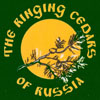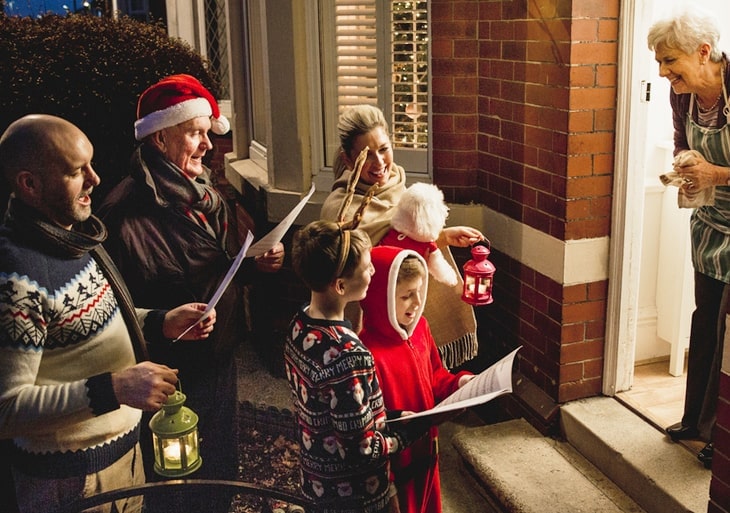 |
Kolyada is an ancient Slavic holiday that merges with Christmas and New Year, creating a unique atmosphere of celebration, joy, and unity.
Kolyada has deep historical roots going back to paganism. There are many theories and versions about the origin of the holiday. The origin of the word "Kolyada" is associated with the ancient Greek language and can mean "wheel", symbolizing the cycle of life, the change of seasons and the continuation of the family. There is also a version that Kolyada came from the Latin "calenda", which means a new month and a new year.
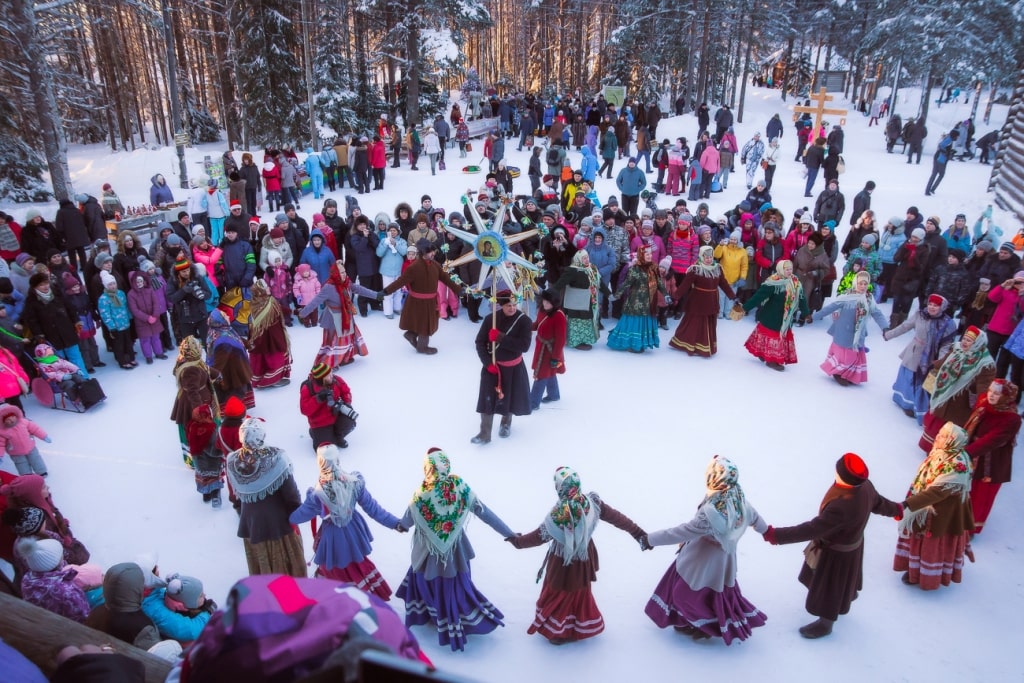 |
Historically, Kolyada was celebrated during the winter solstice, when the day begins to increase and the night decreases. This time was understood as a point of renewal, when the old leaves and the new comes. In the traditional Slavic calendar, Kolyada symbolized the beginning of a new year and a new cycle of life. Celebrations were infused with rituals that were aimed at revitalizing life and the harvest, as well as protection from evil spirits.
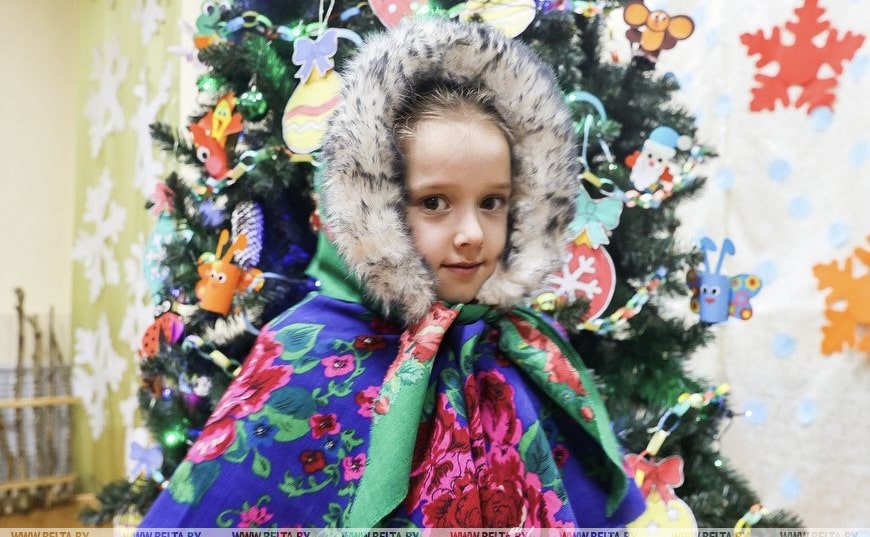 |
Kolyada rituals and traditions
Kolyada is not just a holiday, but a whole complex of rituals and traditions passed down from generation to generation. The main element of Kolyada is caroling, when small groups of people or whole families go around the houses of neighbors, singing songs of greeting. Such rituals had both comforting and protective functions.
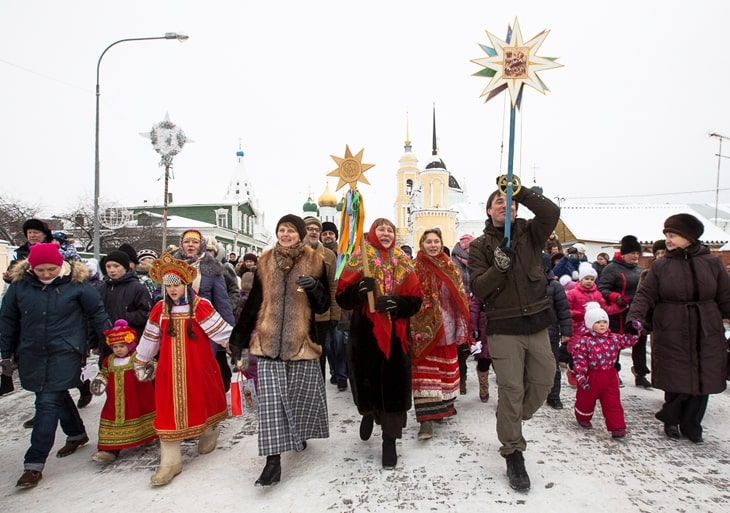 |
During caroling, performers dressed in costumes, many of which symbolized winter, sought to instill warmth and joy into the house. For their efforts they received treats - pies, sweets, and even money. This exchange creates an atmosphere of mutual help and unity within the community.
Kolyada in modern kin’s settlements
Kolyada is celebrated with special attention in the kin’s settlements. Communities striving to preserve and revitalize traditional values see this holiday as a way to strengthen ancestral ties, to pass on to children the knowledge of their roots and the deep meanings embedded in their culture.
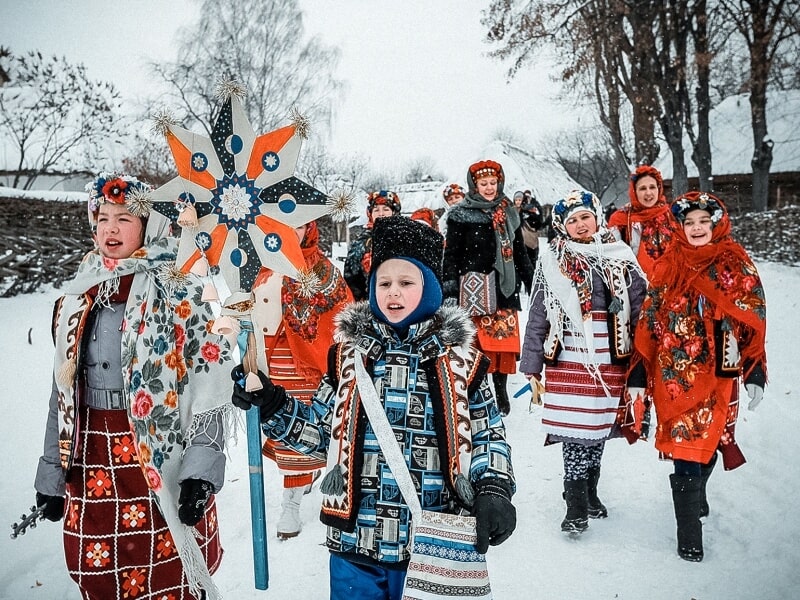 |
Koliada traditions in the kin’s settlements may vary depending on the region and the people themselves, but the central aspect remains the principle of unity and cooperation.
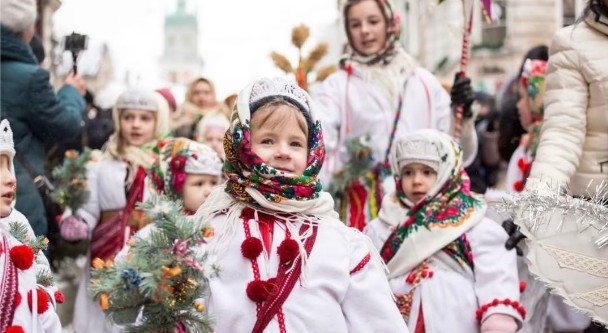 |
The important point is that Koliada in the kin’s settlements becomes a deeper event, dedicated not only to celebration, but also to realizing one's place in the world.
